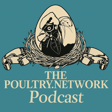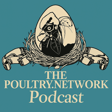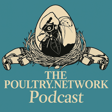
Will a new deal with Europe smooth poultrymeat trade? And how will new stocking densities affect supply of British chicken
In this episode, Tom Willings and Tom Woolman are joined by Richard Griffiths, Chief Executive of the British Poultry Council (BPC) – the UK trade association for poultry meat producers, including chicken, turkey, duck and goose.
Richard offers insights into his career, which began in mining engineering before he transitioned to the poultry sector nearly two decades ago.
He reflects on how the industry has changed dramatically and why it remains as interesting and vital as ever.
The core discussion focuses on the sanitary and phytosanitary (SPS) law changes announced in May, aimed at easing post-Brexit friction in trade between the UK and the EU.
Richard explains the broader context of food security and how future trade frameworks must serve the long-term goal of feeding the nation reliably and sustainably.
He argues that the UK must build a resilient, fair trading system, and that improved SPS arrangements with the EU are a step in the right direction.
This is essential, not just for the poultry meat trade, but for genetic exports too – an often-overlooked pillar of the UK’s poultry industry.
Some key points discussed:
- Food security must underpin all future policy decisions. The UK needs a long-term strategy that prioritises domestic production while maintaining productive trade links.
- Post-Brexit, UK poultry producers have faced five years of disproportionate trade barriers compared to EU exporters. New SPS streamlining could help reverse a 33% drop in exports since 2019.
- The UK’s poultry sector depends on balancing imports and exports: particularly dark meat exports and breast meat imports, due to consumer preferences.
- Speed, shelf life and just-in-time supply chains are critical. Friction in trade undermines the viability of fresh meat exports.
- There’s a growing shift toward “just-in-case” supply chains, building resilience into the system post-COVID, Brexit, and other global shocks.
- The UK must maintain high animal welfare and environmental standards, but ensure those don't outpace trading partners and put domestic producers at a disadvantage.
The conversation also touches on stocking density reductions in UK broiler production.
While viewed positively as a welfare improvement, the changes have reduced production capacity, raising questions about how the UK balances regulation with affordability and competitiveness in a global market.
Finally, the episode acknowledges the complexity of interlinked challenges — from trade policy to environmental impact — and the need for government to avoid siloed thinking.
As Richard notes, a close relationship with the EU should not be seen as a trade-off, but a strategic necessity for long-term stability.


